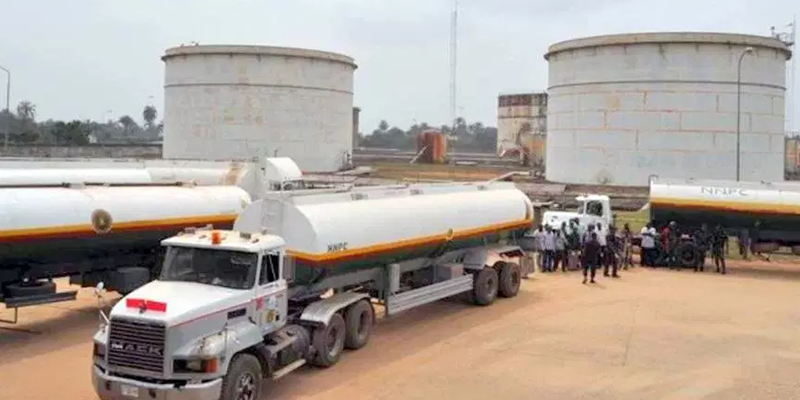The Nigerian downstream oil sector is on the brink of a significant disruption as a dispute between the Nigeria Union of Petroleum and Natural Gas Workers (NUPENG) and the Dangote Petroleum Refinery escalates. The core issue revolves around Dangote’s plan to import 4,000 Compressed Natural Gas (CNG) trucks for direct fuel distribution, bypassing the existing network of tanker drivers represented by NUPENG. The union alleges anti-labor practices, claiming Dangote intends to recruit new drivers for these trucks and prohibit them from unionizing, a move NUPENG considers a violation of constitutional and international labor laws. This brewing conflict threatens to disrupt fuel supplies across the country, potentially resulting in fuel scarcity.
NUPENG’s grievances stem from perceived broken promises and a sense of betrayal. The union claims to have supported Dangote Refinery throughout its construction and commissioning, anticipating job creation and industry growth under a conducive labor environment. Instead, they accuse Dangote of seeking to monopolize fuel distribution, potentially stifling competition and negatively impacting consumer prices. NUPENG’s leadership asserts that despite repeated attempts to engage with Dangote and relevant authorities, their concerns have been ignored, leading to the current impasse. The union now views Dangote’s actions as a direct attack on the livelihoods of thousands of tanker drivers and a broader threat to the Nigerian public.
Adding fuel to the fire is the alleged recruitment process by Dangote’s cousin, Sayyu Aliu Dantata, for drivers of the imported CNG trucks. NUPENG contends that these prospective drivers are being coerced into signing agreements preventing them from joining any union within the oil and gas industry. This action has further solidified NUPENG’s belief that Dangote is actively seeking to undermine the union’s influence and potentially exploit workers. This alleged coercion is seen as a blatant disregard for workers’ rights and an attempt to create a non-unionized workforce, a practice NUPENG vehemently opposes.
In response to these perceived threats, NUPENG has issued a strong warning, threatening to instruct its members to cease loading petroleum products starting Monday, September 8, 2025. The union further claims that if Dangote succeeds in replacing the existing tanker driver network, its members will begin seeking alternative employment. This drastic step highlights the severity of the situation and underscores the union’s commitment to protecting its members’ interests, even at the risk of causing widespread disruption to fuel supplies. The union’s appeal to the public for understanding underscores the gravity of the potential consequences.
Beyond the immediate impact on fuel distribution, the conflict raises broader concerns about labor rights and fair competition within the Nigerian oil sector. NUPENG has called on the Nigerian Midstream and Downstream Petroleum Authority (NMDPRA) to intervene, citing the Petroleum Industry Act and emphasizing the authority’s responsibility to prevent the abuse of dominant market positions and restrictive business practices. NUPENG’s call for government intervention reflects a desire for regulation and oversight to ensure fair practices within the oil sector. The union emphasizes the importance of upholding the constitutional right to association and preventing exploitation of workers.
The Dangote Refinery, touted as a potential game-changer for Nigeria’s energy independence and a symbol of local capacity building, is now at the center of a labor dispute that could significantly impact the country’s fuel supply. The refinery’s impressive production capacity of 650,000 barrels per day, initially hailed as a positive development, is now overshadowed by the looming threat of nationwide disruption. NUPENG’s actions highlight the potential consequences of disregarding labor concerns in the pursuit of economic development. The situation remains volatile, and the government’s response, alongside Dangote’s willingness to engage with NUPENG, will be crucial in determining the future course of this conflict. The potential impact on fuel prices and availability underscores the urgency of finding a resolution that addresses both the economic and labor-related concerns at stake.


